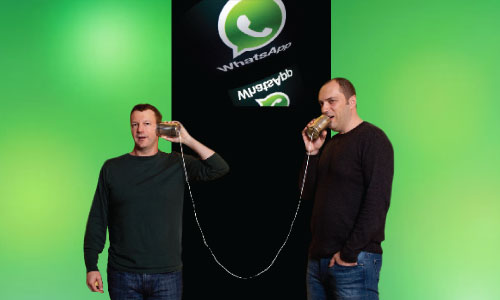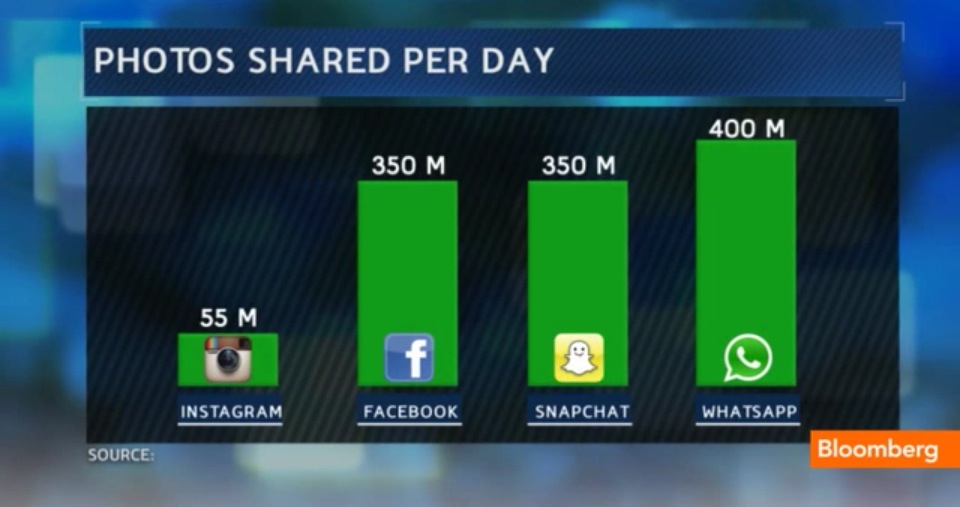Many people will be wondering why Facebook CEO Mark Zuckerberg is keeping WhatsApp separate from his major social media solution. After all, some media reports indicate that Facebook spent as much as $21.8 billion in stock and cash to purchase WhatsApp.

Mark Zuckerberg, Jan Koum and Brian Acton
Interestingly enough, there are several good reasons why Mr. Zuckerberg wants WhatsApp to remain entirely separate from Facebook. Even though the reasons are not readily apparent to us, they are fairly obvious. Yet even some seasoned investors will be skeptical of the purchase because WhatsApp apparently lost $138 million in 2013, according to The New York Times Deal Book.
From a business standpoint, leaving WhatsApp separate makes a great deal of sense. It could also be a highly lucrative strategy that could make Facebook the most powerful and profitable force in the world of social media.
The Reasons Why Zuckerberg Wants WhatsApp to Remain Separate from Facebook
Some of the major reasons why WhatsApp will remain a separate entity from Facebook for the foreseeable future include:
- WhatsApp is a smartphone-based solution, while Facebook is an inter-oriented application. Basically, Facebook is designed to facilitate communication over the Internet, while WhatsApp is designed to facilitate communication over phones. Those two functions require very different technologies that are in many ways are highly incompatible.
- WhatsApp itself will do little or nothing to enhance Facebook. Since Facebook is designed to be used through computers, it would be hard to integrate with WhatsApp.

- Integrating WhatsApp with Facebook would greatly diminish its value. Were WhatsApp to be seen as merely a tool to use with Facebook, a lot of people would not use it.
- Facebook and WhatsApp reach entirely different audiences. Facebook’s users are mostly affluent people in developed countries with access to traditional desktop, tablet, or laptop computers. WhatsApp’s users are persons in developing countries with access only to phones. Part of the reason why Zuckerberg bought WhatsApp was to access a vast audience he could never reach through Facebook.
- WhatsApp has a very different business model than Facebook. Facebook’s business model is to create a market for advertising by expanding its social network. WhatsApp’s model is to create a worldwide delivery system for a wide variety of services and possibly goods.
- Facebook also relies heavily upon advertising revenue, while WhatsApp does not. This occurs partially because its creators, Brian Acton and Jan Koum, designed WhatsApp as an ad-free environment, which is part of its appeal. Making WhatsApp part of Facebook would destroy that aspect of its business and limit its appeal.
- Zuckerberg also wants to keep Koum and Acton happy because they’re brilliant guys. He wants them to be working at Facebook when they come up with their next $21 billion idea.

- Facebook can afford to lose $138 million a year at WhatsApp for a long, long time. The company reported a net income of $2.82 billion, a free cash flow of $1.412 billion and revenues of $15.94 billion on September 30, 2015, according to YCharts. That means Facebook can afford to lose money on WhatsApp for quite a while; Facebook also had $15.83 billion in the bank on the same day.
- The value at WhatsApp comes from the number of active users. It has 900 million in September 2015. Obviously, it is very successful in that regard, so Zuckerberg has no reason to mess with success.
As you can see, Mark Zuckerberg has many very good reasons to keep WhatsApp separate for now, although that might change in the future because there is a strong possibility that WhatsApp and Facebook could be integrated at some point.
Will Facebook and WhatsApp Ever Be Integrated?
Perhaps the most intriguing possibility of all is that at some point in the future Zuckerberg will integrate all of his social media solutions—WhatsApp, Facebook, and Instagram—into one massive social media platform that will bring the Internet and phones together in a new form of communication.
The recent changes to WhatsApp, which include the WhatsApp Web interface for computers and video message, indicate that is entirely possible. Koum, Acton, and Zuckerberg do seem to be making WhatsApp more and more like Facebook.

Yet they may have other plans for WhatsApp. One strong possibility is that they might try to turn it into an ecommerce solution. People in many parts of the world, such as India, are already making use of WhatsApp for business. Some features, such as WhatsApp Lists, do seem designed for ecommerce.
A more grandiose plan could make WhatsApp into something like Google, which evolved from a humble search engine into a portal to the entire web. WhatsApp could serve as the Google of the developing world, bringing the whole web to them just as Google brought the web to the average people of American and Europe.
Google’s Present Could Show Us WhatsApp’s Future
If Zuckerberg wants to follow Google’s example, then WhatsApp could stay a separate company for the foreseeable future. In the summer of 2015 Google founders Sergey Brin and Larry Page totally reorganized their company into a new entity called Alphabet.
Alphabet is actually a holding company on Warren Buffett’s Berkshire Hathaway, which owns a variety of businesses but keeps them entirely separate. Today, Google, which operates the search engine, YouTube, and Android, is actually a separate company owned by Alphabet.
Other companies owned by Alphabet, including Google Ventures, Google Capital, Calico, Nest, Fiber, and the research organization Google X, will be wholly owned by Alphabet but kept entirely separate. The reason for this is that those companies are entirely different from the search engine. Fiber is basically a telecom that owns, manages, and installs advanced fiber optic cable systems; Ventures is an investment bank, and Nest develops instruments.
Like Page and Brin, Zuckerberg recognizes that operating all the companies as one will invite disaster. So he intends to keep the various arms of his empire separate. Another reason for that is to reduce bureaucracy and the expenses it creates.
Naturally, many people will wonder how this will work and what it will look like. Nobody knows, but given Zuckerberg’s track record, it is likely to be big and highly successful. Facebook’s various social media solutions, including WhatsApp, Facebook itself, and Messenger, have 1.6 billion users, according to Empresa Journal . Keeping WhatsApp separate is the fastest, cheapest, and most sensible way to keep that empire expanding successfully.
